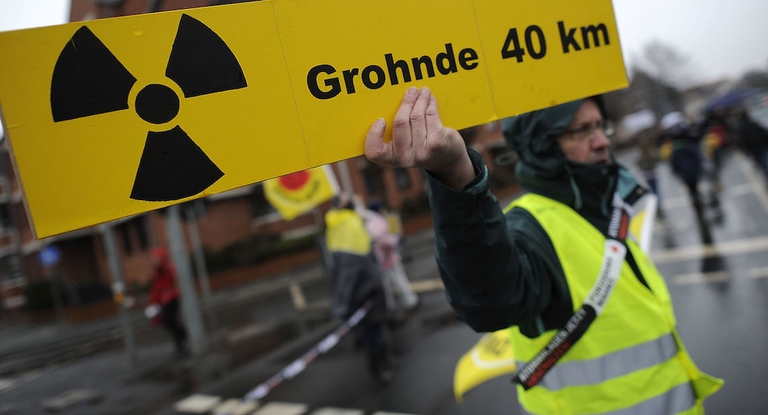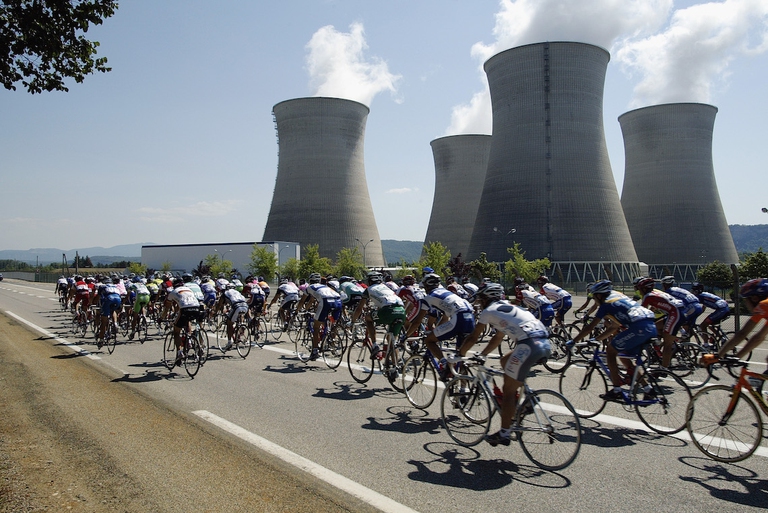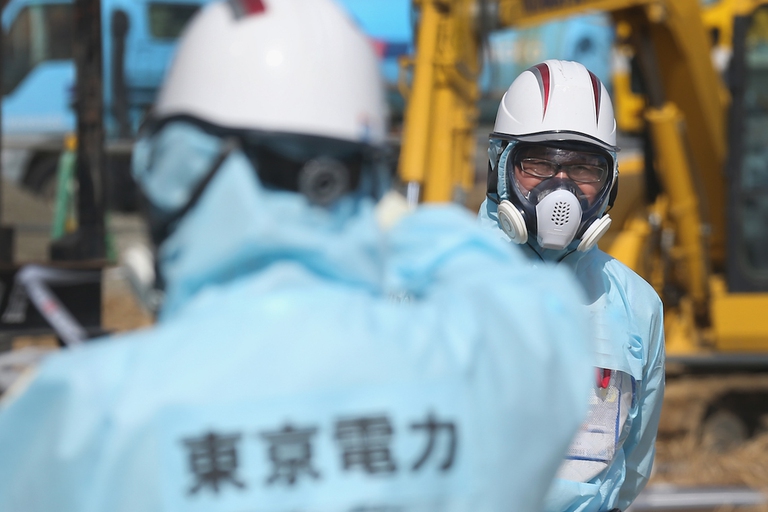
A group of experts in Tokyo suggested pouring radioactive water from Fukushima into the open sea. A marine biochemist explains the consequences of this absurd decision.
L’allarme del presidente dell’Autorità francese per la Sicurezza Nucleare, a cinque anni dal disastro di Fukushima. Ecco le centrali transalpine a rischio.
“A Fukushima-like disaster could happen in Europe. I can’t tell the odds, but the first step is assuming that it is possible”. These words weren’t pronounced by any Greenpeace activist, but by France’s Nuclear Safety Authority President Pierre-Franck Chevet who, during an interview with the newspaper Libération, made clear that catastrophic scenarios cannot be excluded.
The French newspaper asked Chevet why he talked of a “particularly worrying situation as far as nuclear security is concerned”. Chevet said that his statements come from three facts: “Firstly, the maintenance of 40-year-old plants is technically complicated. EDF – France’s main electricity company – estimates that 55 billion euros are needed to carry out such maintenance works”.
Secondly, continued Chevet, “security standards are higher, while our nuclear power stations date back to the 1980s. This is anything but a secondary problem”. Lastly, what’s also worrying is “the financial condition of nuclear industry’s main actors. EDF, Areva, and CEA (Atomic Energy Commission) are going through economic difficulties. When companies lack means, there’s a higher risk as for security”.
“In any case, we’ve set goals and deadlines. And we’re going to monitor them in order to be achieved. We carry out many inspections and law allows us to impose financial sanctions if needed”.
The newspaper 20 Minutes mapped the existing risks in France, home to 58 nuclear reactors divided in 19 sites. EDF assured that “reactors’ security levels are systemically assessed in compliance with international standards”. Reactors underwent “stress-tests” in order to verify their resistance to extreme conditions, including earthquakes, floods, or terror attacks.
However, according to expert Yves Marignac, “even if reactors are classified according to their security levels, nothing can guarantee that a Fukushima-like disaster won’t take place in those sites considered to be the most reliable”.
The nuclear power stations that are mainly cause for worry are Fessenheim, Alsace, built 40 years ago and located in a seismic region; Civaux, Central-western France; Chooz, Ardennes; and the under-construction Flamaville reactor.
Moreover, according to Greenpeace, there are two sites at risk, Tricastin and Bugey, that are not far from the Italian border.
Siamo anche su WhatsApp. Segui il canale ufficiale LifeGate per restare aggiornata, aggiornato sulle ultime notizie e sulle nostre attività.
![]()
Quest'opera è distribuita con Licenza Creative Commons Attribuzione - Non commerciale - Non opere derivate 4.0 Internazionale.
A group of experts in Tokyo suggested pouring radioactive water from Fukushima into the open sea. A marine biochemist explains the consequences of this absurd decision.
A federal court in Washington, D.C. has struck down the Dakota Access Pipeline, following years of campaigning by the Standing Rock Sioux tribe.
The scene isn’t post-apocalyptic as one might expect. Fukushima, now, seems like any other place – underpopulated but ordinary. In 2016 we visited the prefecture on the northeastern coast of Japan, over 200 kilometres north of the capital Tokyo, to talk to those who are committed to getting their lives back on track after the earthquake, tsunami
The Scottish island of Eigg is self-sufficient for its energy needs, relying almost entirely on renewable sources, especially thanks to a coordinated community effort.
President Magufuli in unmovable in going ahead with the Stiegler’s Gorge dam despite conservationists’ warnings of the damage it will cause the Selous Game Reserve’s ecosystem and wildlife.
A large dam along the Luangwa River in Zambia would have posed a serious risk to local people and wildlife, leading hundreds of thousands to oppose it. A call to which the government responded by halting plans to build it.
The first one megawatt solar power plant in the Chernobyl exclusion zone has become operational. This is the first step in a renewable energy development project promoted by the Ukrainian government in the area.
A tanker exploded at a gas and petrol station in Nigeria’s Nasarawa state on the 10th of September, killing 35 people and leaving some burned beyond recognition; 3 citizens had several spine and brain injuries, 2 of them are still on Intesive Care Units. Fela Habila , a local singer, is now stable and out of danger but
The largest tidal power plant in the world will be built in the Larantuka Straits. It will serve 100,000 people and help overcome some of the challenges of energy provision in Indonesia.










